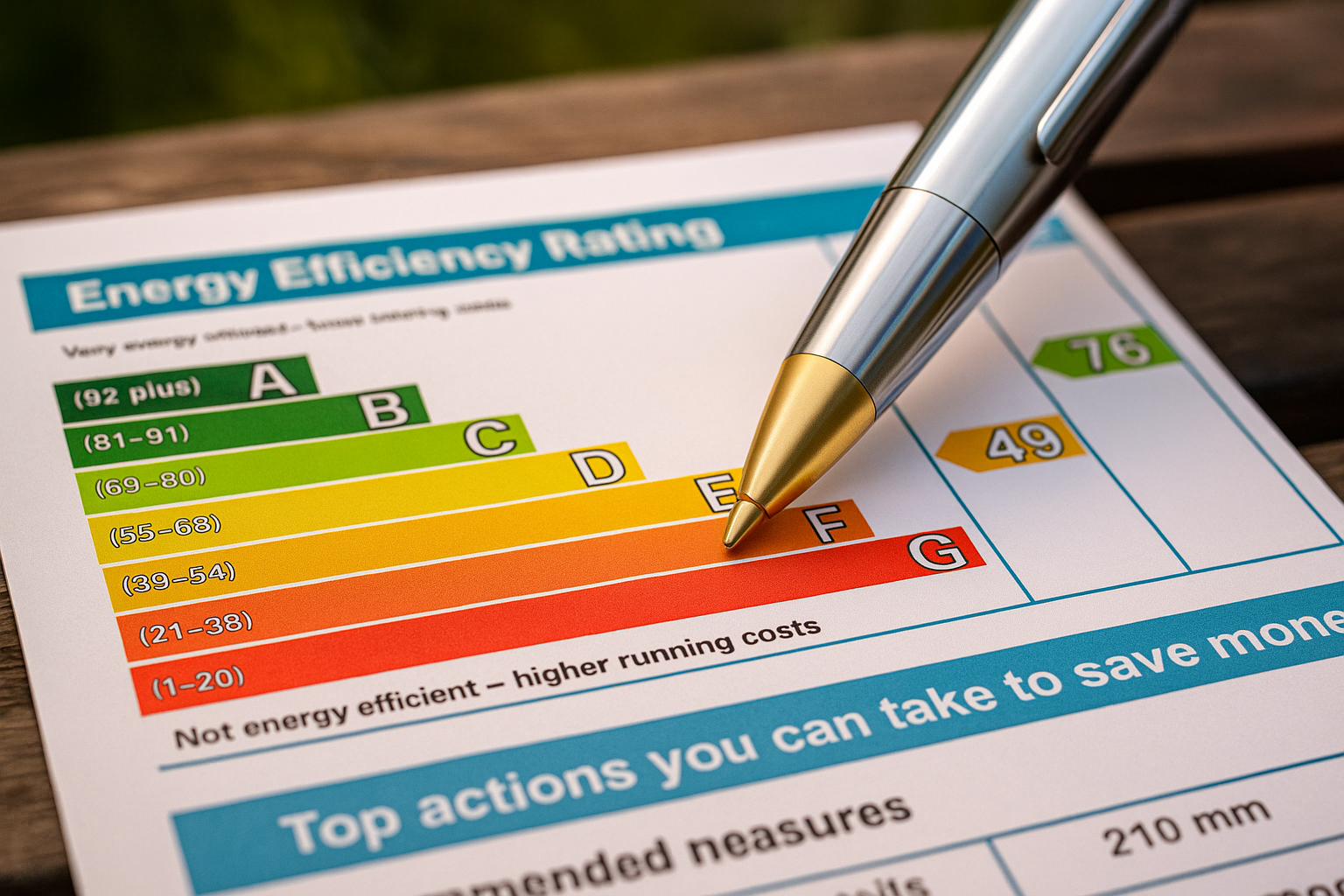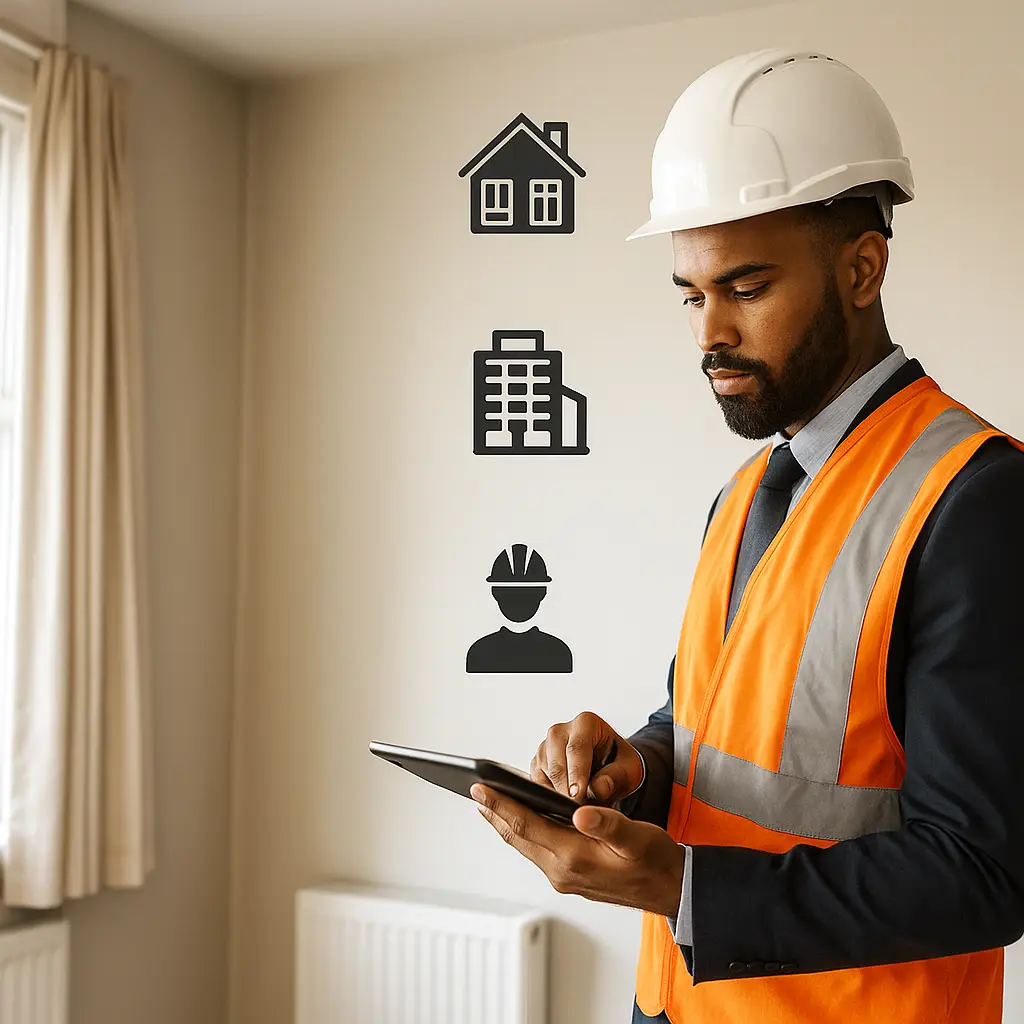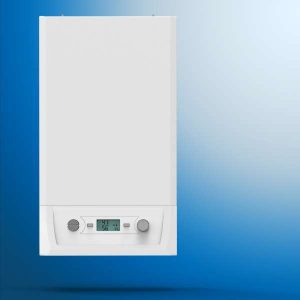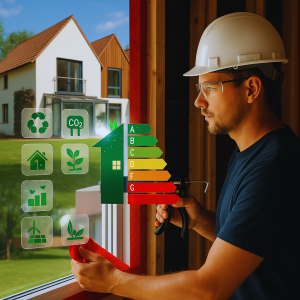What Is a SAP Energy Assessment and Why Does It Matter?
If you’re looking to improve your home’s energy rating, one of the first steps is to book a SAP energy assessment. SAP stands for Standard Assessment Procedure, and it’s the method used by the UK government to measure the energy rating of residential buildings. A good energy rating can help lower your utility bills and reduce your home’s carbon footprint.
We at Ratio Seven carry out SAP energy assessments for people who are building new homes or making big changes to existing ones. It’s not just about ticking a box for building regulations. By understanding how your home uses energy, you’ll be better equipped to plan improvements that can save you money.
Whether you’re a homeowner planning a self-build project or a property developer handling multiple sites, knowing your SAP rating helps you make smarter choices in the design and build process.
How SAP Energy Assessments Work
A SAP energy assessment looks at the energy used for heating, lighting, and ventilation. It also factors in how energy is lost through walls, roofs, doors, and windows. It’s not about checking your energy bill each month; it’s about predicting how energy-efficient your home should be based on the materials, insulation, heating systems, and layout used.
This assessment is often needed when getting planning permission or completing a new home. It’s also required to provide an Energy Performance Certificate (EPC), which is essential when selling or renting out a property.
The process begins when one of our assessors at Ratio Seven collects building plans, drawings, and specifications. We’ll then use that data to create a digital model of your home and run it through special software approved by the government.
The result is a SAP rating between 1 and 100, with a higher number being better. Scores over 100 are possible if your home generates more energy than it uses.
The Benefits of Booking a SAP Assessment Early
Getting your SAP assessment early in a construction project can save you time and money. If you wait until the building is nearly finished, you might find that expensive changes are needed to meet the required energy standards. Most building regulations in the UK require you to pass certain energy requirements, and knowing your SAP results in advance gives you time to make changes before it’s too late.
If you’re building or renovating, a good assessment allows you to plan your insulation, heating system, and ventilation properly. That means better comfort when you’re living there, and stronger appeal if you choose to sell.
By planning, you could switch to more efficient heating systems, improve floor or wall insulation, or use better windows, all improving your SAP rating and saving energy.
How to Improve Your SAP Rating Without a Major Overhaul
Worried about your SAP number being too low? You don’t always need a full renovation to improve it.
Here are some simple ways to improve your score:
- Upgrade your boiler: If your home is using an outdated boiler, switching to a modern condensing boiler can make a big difference.
- Insulate your loft: A poorly insulated roof can lose up to 25% of your home’s heat. Loft insulation is affordable and easy to add.
- Seal drafts: Gaps around windows or doors let heat escape. Adding simple draught-proofing strips can help.
- Switch lighting to LED: Older bulbs can use much more power than necessary. Switching to LED lighting is quick and effective.
- Smart heating controls: Thermostatic controls help you manage temperatures better and avoid heating empty rooms.
Even small changes like these can push your SAP rating higher and help you save on running costs.
Where SAP Assessments Fit in with Other Testing
While SAP assessments are based on predicted data, other tests look at the actual finished home. One example is an air tightness test, which checks how much air leaks out of the building. This affects heating needs and energy use.
If you’ve not had an air tightness test before and want to learn more, our detailed air testing FAQs explain what’s involved and why it’s important.
The results from an air test are also fed back into the SAP calculation to give a more accurate final figure. So by improving your home’s air tightness, you won’t just pass regulations, you also improve your SAP score.

FAQs
Do I need a SAP assessment if I’m not selling my house?
Yes, if you’re building a new home, converting one, or making major changes, it’s usually required by law, even if you’re not selling.
Can I carry it out myself?
No, it must be done by a qualified assessor. Our team at Ratio Seven is fully trained and ready to help.
How long does it take?
Once we get all your plans and documents, results can usually be ready in 2 to 4 days.
Will it tell me how to save energy?
While the SAP itself focuses on ratings, we’ll also talk you through simple improvements that could make a big difference.
Is it expensive?
SAP assessments are cost-effective, especially when you factor in the energy savings. Prices can vary depending on the size and detail of the project, but we keep things clear from the start.
Why Choose Ratio Seven for a SAP Energy Assessment?
We’ve helped people across the UK improve their home energy ratings. Our team is experienced, and we understand how to guide property developers and homeowners through the SAP process without stress. We know what building control inspectors are looking for, and we’ll help you avoid delays.
Whether you’re designing a new build or updating your family home, we’ll give you clear advice and detailed results. Our open approach means you’re never left guessing about the next step. Visit the Ratio Seven website to see more about what we do.
We also work closely with builders and can suggest tweaks to your design, insulation, or heating system to save energy and meet regulations. If you need repeat assessments or EPCs for multiple builds, we’ve got everything in place to support you.
Make Your Home Smarter, Warmer and Cheaper to Run
SAP assessments can sound technical, but they are really about making good decisions with your home. The better your home’s energy rating, the easier it is to keep costs low and stay comfortable without wasting power. It’s about knowing where your home stands now and making smart improvements that will help for years to come.
Whether you’re starting a new build, converting an old cottage, or extending your family home, booking a SAP assessment is the right starting point. It makes everything else that follows much simpler.
Ready to Improve Your Home’s Energy Rating? Let’s Get Started
If you’re ready to understand your home’s energy score and find ways to make it better, we can help. At Ratio Seven, we make SAP energy assessments straightforward to follow. Our team is ready to support your project, from first plans to final results.
Start today by getting in touch with us through the Ratio Seven website, and we’ll help you book your SAP assessment. Make your home warmer, smarter and more affordable to live in.




